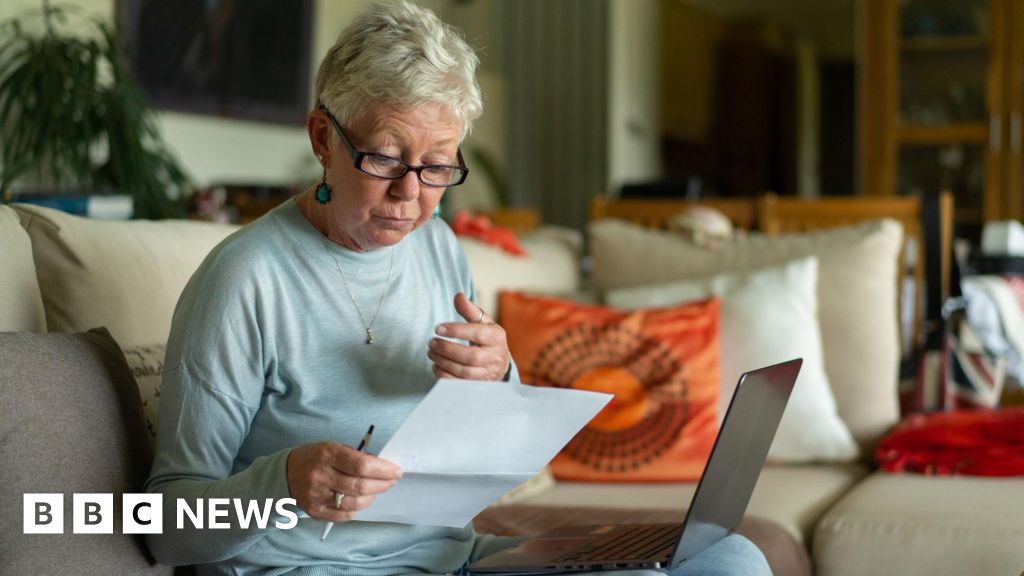ARTICLE AD BOX
 Image source, Getty Images
Image source, Getty Images
Most households will see their energy bills rise on Saturday, as the new energy price guarantee comes into effect.
The rise is less than had previously been expected, after the government announced it would cap domestic bills to prevent widespread hardship.
But it is still significant. A typical household's energy bill will rise from £1,971 to £2,500 - that's double what it was last winter.
So what can you do to try to prepare for higher bills?
Though most energy-cutting tips won't make enough of a saving to offset the total impact of soaring bills, there are some ways to make sure you are paying the right bills and to help ease the mounting costs.
1. Check meter readings
Suppliers need regular readings from your gas or electricity meter to calculate your bills.
Without your readings, suppliers estimate usage which means your bills could be too high, so households are being urged to contact their suppliers to give them the readings via a phone call, their website or an app.
Industry body Energy UK said there is no need to submit a meter reading on 1 October itself, as most suppliers will accept readings for a few days on either side of that date.
But it advised customers to check with their supplier for advice on giving readings when the new prices kick in, as high call volumes and website traffic are expected.
For those who have not read a meter before, Citizen's Advice has information on how to recognise different meters.
You do not need to do a meter reading if you have a working smart meter (credit or pre-payment) or a fixed deal.
Those on pre-payment meters may be able to keep current prices into October and even November if they top up the card with credit before 1 October. This will not work for gas meters, smart electrical pre-payment meters or E.On or Scottish Power. Suppliers can also backdate these charges so it is not a guarantee.
There are also longer term cost-cutting tips such as insulating your home well, checking appliances are turned off rather than left on standby and turning your thermostat down by one degree.
2. Claim what you're entitled to
Make sure you are claiming all the support you are entitled to.
All households will get a one-off £400 cut to their fuel bills from October.
You do not have to contact your supplier about this. The discount will be made automatically by energy suppliers in England, Scotland and Wales.
It will be spread over six months, with a reduction of £66 in October and November, and £67 every month between December and March 2023.
Separate arrangements are being made for households in Northern Ireland, which has its own energy market.
You can use the Citizens Advice benefits calculator to work out if there are any other funds you should be claiming.
Households that receive the Winter Fuel Payment - which is worth £200-£300 and is paid to nearly all homes with at least one person of pension age - will receive an extra £300 in November or December. That should cover nearly all pensioners across the UK.
In England, Scotland and Wales, all homes in council tax bands A to D, or up to E if a householder has a disability, are also eligible for a £150 energy rebate from their local council. The payment should have been made by the end of September, so check that you have received this. The Northern Ireland Assembly has received an equivalent sum of money to administer locally.
If you are claiming support such as income-based jobseeker's allowance, income support, pension credit or universal credit, certain schemes can help you pay your energy charges and energy debt directly from your benefits.
Jobcentre Plus or the Pension Service can arrange for some of the benefits to be paid directly each month to the energy company owed.
If you can't afford your ongoing energy bills, contact your supplier. If you are in debt to your energy company, you might be able to get a grant to help pay it off. British Gas, Octopus and Scottish Power are among the firms which offer grants to their customers and charity Citizens Advice offers more guidance.
Organisations such as National Debtline also offer advice, and can help you check that your bills are correct and complain about your supplier if they are not.
If you do get into debt, Citizens Advice warns that suppliers have the right to force you onto a prepayment meter, which is the more expensive way of paying. The charity predicts almost half a million people could be in this position over the winter.
Although the government says a typical household can expect to pay £2,500 a year, this is not a limit on how much you will actually pay.
It has worked out that figure for a "typical" household using a new limit on unit prices of 34p per kWh of electricity and 10.3p per kWh of gas for dual-fuel customers on a standard variable tariff.
However, most households aren't typical, and your bill depends on how much energy you actually use.

 2 years ago
71
2 years ago
71








 English (US) ·
English (US) ·